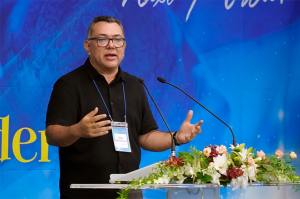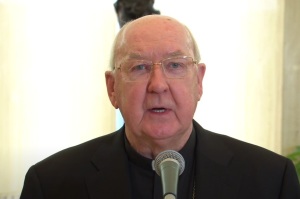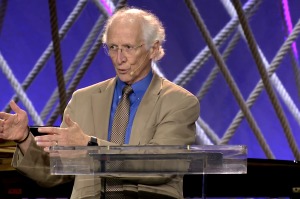Court Upholds the Rule of Law in Stem Cell Case
In a case that goes against the grain of other recent federal court decisions that appeared to create rather than simply interpret the law, the U.S. District Court for the District of Columbia temporarily cutoff the flow of public monies to human embryonic stem cell research August 23.
I am delighted the court's Chief Judge Royce C. Lamberth made the decision to uphold the rule of law as passed by the Congress of the United States, the people's elected representatives.
In the case, two scientists, several other individuals, Nightlight Christian Adoptions and the Christian Medical & Dental Associations with the support of the Alliance Defense Fund sought to prevent the Obama administration's Guidelines for Human Stem Cell Research from taking effect.
In 2009 the Obama administration announced that it would permit federal funds to be used for research into embryonic stem cell lines that were permitted under the Bush administration's policy directives or that were created from embryos leftover after in vitro fertilization procedures. President Obama's guidelines required private funding for the procural of the embryonic stem cells themselves, but allowed government funds to be used for "research" on the new and existing stem cell lines.
In August 2001 then-President Bush received mix reviews for approving the government's funding of embryonic stem cell research but limiting that research to the 78 cell lines that existed at that time.
The Obama administration reasoned that even with the Dickey-Wicker Amendment, which was first signed into law by President Clinton in the mid-90s and prohibits any federal funding for research that results in the destruction of an embryo, it was permissible for the government to fund research since they held that the "research" itself did not directly lead to the destruction of the embryo.
The federal government argued it is possible to "define ESC [embryonic stem cell] research and the derivation of ESCs from embryos as separate and distinct 'pieces of research.'"
Judge Lambreth took exception with the administration's perspective and issued a temporary injunction, noting that embryonic stem cell research "necessarily depends upon the destruction of a human embryo."
The Obama administration ignored the clear intent of this legislation in order to use taxpayers' dollars in the killing of unborn babies in pursuit of medical research.
The sad thing about all of this is embryonic stem cell research has been made virtually obsolete by the invention of the induced pluripotent stem (iPS) cells for a source of embryonic stem cells. Induced pluripotent stem cells allow medical researchers to take stem cells from adults and cause them to regress to their embryonic, undifferentiated state, thus providing all the advantages of embryonic stem cell research without having to kill unborn babies.
Dr. David Stevens, who is head of the Christian Medical & Dental Associations, affirmed the decision: "The bottom line is that ethical stem cell research that does not destroy a living human embryo is the fastest, most efficient and effective means to obtaining real cures for real patients. Already providing hope and help for patients with over 70 diseases, ethical stem cell research that does not destroy living human embryos holds proven promise for even more amazing breakthroughs in the future."
Why the Obama administration continues to pursue federal funding for embryonic stem cell research is a mystery, even to many within the medical profession.
In the judge's ruling, he agreed that the work of the plaintiffs, adult stem cell researchers, was necessarily harmed by the Obama administration's directives because those guidelines allow federal funding for embryonic stem cell research, thereby increasing competition for funding for other stem cell research. Lambreth wrote, "This increased competition for limited funds is an actual, imminent injury. The balance of hardships weighs in favor of an injunction."
I am grateful for a judge who sought only to interpret the law, not write law from his bench.





























